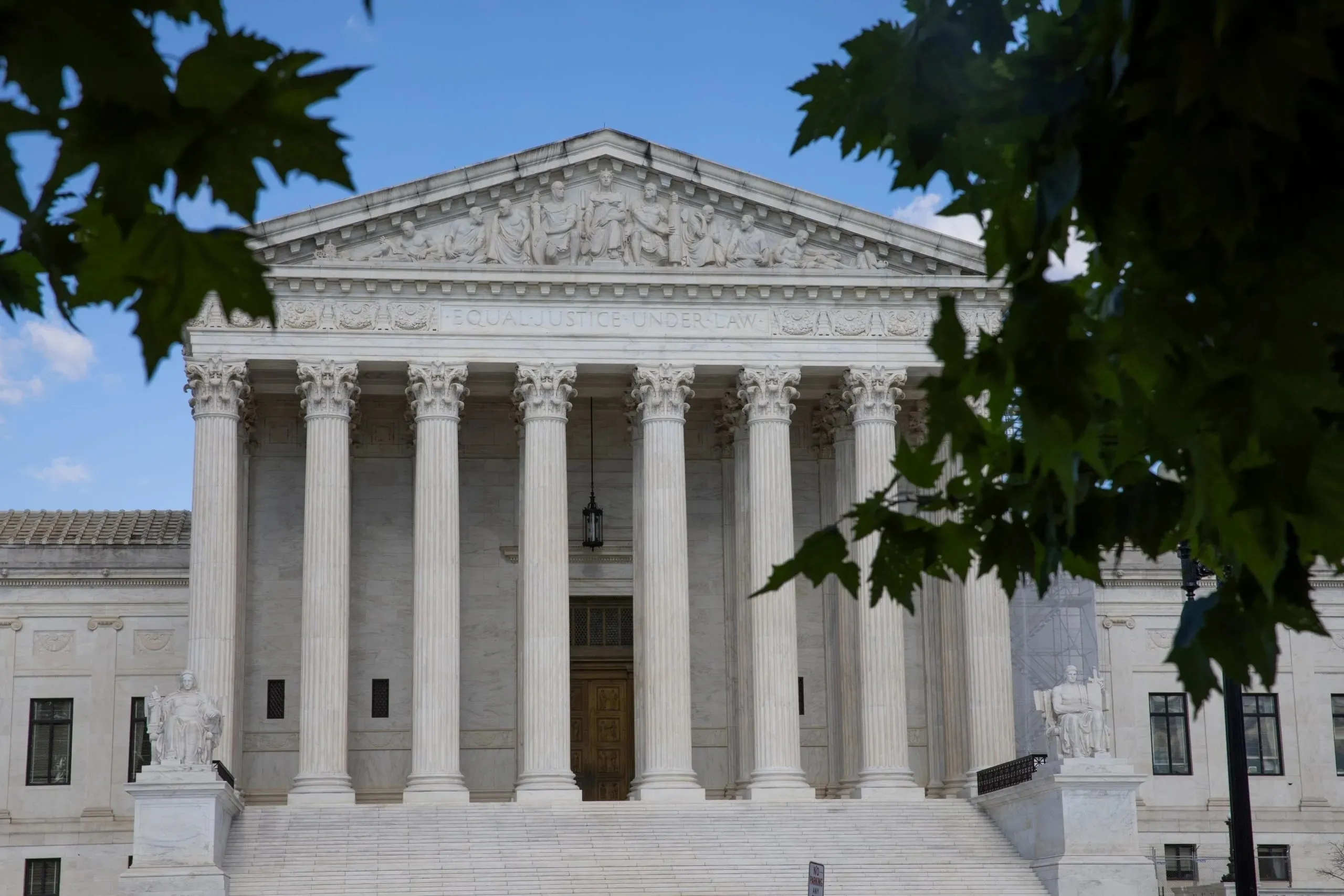Editor’s Note: During my time at Latino Rebels, Joe wrote several opinion pieces for Latino Rebels. This is his debut piece for The Latino Newsletter. — JRV
Every morning at school for my entire young life, I had to stand up and recite the words to the Pledge of Allegiance, a classroom ritual during which the teacher and their students all stand up and face the nearest American flag. They then proceed to pledge their unfaltering allegiance to the flag itself, but also to the Republic that flag represents and all the great things that Republic stands for, including a singular indivisible nation as well as “Liberty and Justice for all.” This ritual begins at the earliest levels of education, long before a child even understands what those words actually mean.
It does sound amazing, though, doesn’t it? A singular nation that cannot and will not be divided, and a promise that everyone within that indivisible nation will be granted conditionless liberty and justice.
That’s the kind of promise we want to believe in.
Then we grow up, and if we’re actually paying attention, we learn that it’s so much more complicated than that. Some of us, after reciting that pledge more than a thousand times, took it to heart and began to believe in the principles it presented. Others of us took it and skewed its meaning, or decided to pick and choose the parts we wanted to believe in. I don’t think any of us still believe that this nation is incapable of becoming divided, or that it offers conditionless liberty or justice for all.
Let’s talk about birthright citizenship for a second.
Birthright citizenship, for those unfamiliar, is the constitutional provision under the 14th Amendment that grants citizenship to anyone (except the children of foreign diplomats) born in the United States or its territories, regardless of their parents’ status. This guarantee, found in the amendment’s second clause, overturned a prior Supreme Court ruling that denied citizenship to enslaved people and helped enshrine the Civil Rights Act of 1866.
Since then, the clause has been repeatedly tested in court, including in cases debating the citizenship of Indigenous Americans, arguing that birth on reservations didn’t qualify since reservations weren’t fully under U.S. jurisdiction (Elk v. Wilkins, 1884). The most well-known and foundational case, however, is United States v. Wong Kim Ark (1898).
United States v. Wong Kim Ark (1898)
Wong Kim Ark was born in San Francisco between 1868 and 1873 to Chinese immigrant parents who ran a merchant shop. Although his parents were barred from naturalization under the Naturalization Act of 1790, Wong considered himself a U.S. citizen by birth. He left the United States twice: once in 1889, when his parents returned to China, and then briefly in 1894. When he came back that same year, authorities denied him entry under the Chinese Exclusion Act, arguing his parents’ foreign status invalidated his citizenship.
He was detained aboard steamships for five months while his case moved through the courts. The Supreme Court eventually ruled 6-2 that the 14th Amendment’s “subject to the jurisdiction thereof” meant being subject to U.S. law, regardless of a parent’s nationality. That interpretation has stood ever since.
Still, the phrase “subject to the jurisdiction thereof” continues to spark debate, especially in cases involving undocumented immigrants.
Which brings us to today.
Trump v. CASA (2025)
During his presidency, Donald Trump tapped into widespread frustrations over immigration, particularly regarding who qualifies for citizenship. One of his first big moves was Executive Order 14160, declaring that children born to undocumented immigrants or even legal immigrants on temporary visas were not U.S. citizens. The order faced immediate legal challenges.
Immigrant advocacy groups sued, and in February 2025, a federal judge issued a nationwide injunction blocking the order. But when the case reached the Supreme Court, everything changed.
The Court did not rule directly on birthright citizenship. Instead, the Justice Department argued the injunction should only protect the named plaintiffs, not everyone affected. The Supreme Court, in a 6-3 decision, agreed.
That decision could have huge consequences beyond immigration. Nationwide injunctions have traditionally blocked unconstitutional policies while courts deliberate, protecting people across the country. Now, those injunctions only shield the specific plaintiffs who sue.
This means that Executive Order 14160 has not been fully revoked, only paused for a limited number of individuals. Everyone else would still be subject to it unless they file their own lawsuits.
It represents a significant shift in how constitutional challenges are handled. Under this precedent, a president could issue executive orders that gut due process, restrict speech, revoke religious freedoms, or even suspend the right to bear arms, and those orders could remain in place for everyone except the first plaintiffs who manage to obtain a ruling.
Consider how this logic could reach beyond immigration policy to other constitutional rights. For example, imagine a president declares the Catholic Church no longer a recognized religion and orders all Catholic-owned properties to close. If the New York Diocese sues and gets an injunction, only they would be protected, while all other Catholic institutions would remain subject to the order until they filed their own lawsuits.
This new reality could overwhelm the courts, with thousands of separate lawsuits needed to block a single executive order. Many people might face deportation, imprisonment, or worse before their cases ever reach a judge.
And so, we return to where we began. We teach our children to pledge allegiance to a Republic that promises “liberty and justice for all,” but as the Supreme Court just reminded us, certain terms and conditions may apply.
About the Author
Joe Wright is a philosophical columnist, author, and educator whose work blends storytelling, critical thinking, and empathy to challenge social norms and foster meaningful dialogue. He runs community-based education programs focused on history, ethics, and creative expression, driven by a deep commitment to justice, voluntary cooperation, and human connection.
What We’re Reading
Trump’s Bill and Immigration Enforcement: From Axios, passage of President Trump’s “Big, Beautiful Bill” will “allow the Trump administration to approximately double immigrant detention capacity, significantly bolster immigration enforcement personnel, and potentially exacerbate backlogs in the court system.”
The Latino Newsletter welcomes opinion pieces in English and/or Spanish from community voices. Submission guidelines are here. The views expressed by outside opinion contributors do not necessarily reflect the editorial views of this outlet or its employees.




